Filter by

Transforming food systems under climate change through innovation
Our food systems have performed well in the past, but they are failing us in the face of climate change and other challenges. This book tells the story of why food system transformation is needed, how it can be achieved, and how research can be a catalyst for change. Written by a global interdisciplinary team of researchers, it brings together perspectives from multiple areas including climate,…
- Edition
- -
- ISBN/ISSN
- 9781009227216
- Collation
- 254 p
- Series Title
- -
- Call Number
- 338.1 CAM t
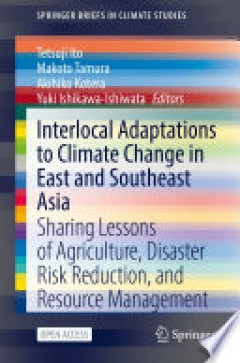
Interlocal Adaptations to Climate Change in East and Southeast Asia: Sharing …
This Open Access book’s main focus is agriculture and natural resource management, disaster risk reduction, and human resource development in the countries of East and Southeast Asia and Japan. Asia is one of the regions which is the most vulnerable to the impacts of climate change. More than sixty percent of the world’s people live in the region, making it the growth center of the world. A…
- Edition
- 3
- ISBN/ISSN
- 9783030812072
- Collation
- v, 164 p
- Series Title
- 164
- Call Number
- 363.73874095
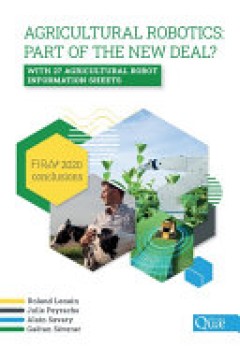
Agricultural robotics : part of a new deal ? : FIRA 2020 conclusions : with 2…
Throughout the fifth edition of the International Forum of Agricultural Robots (FIRA) in December 2020, more than 1,500 farmers, manufacturers, advanced technology suppliers, innovators, investors, journalists and experts from 71 countries around the world gathered to ask questions, share stories and exchange ideas about agricultural robots. This book is a journey into the state of the art of t…
- Edition
- 9
- ISBN/ISSN
- 9782759233823
- Collation
- iii; 80 p
- Series Title
- -
- Call Number
- 338.16 SEV a
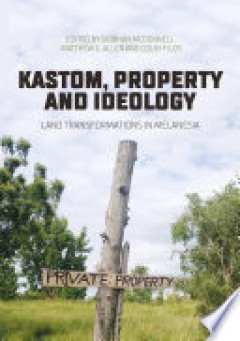
Kastom, property and ideology : Land transformations in Melanesia
The relationship between customary land tenure and ‘modern’ forms of landed property has been a major political issue in the ‘Spearhead’ states of Melanesia since the late colonial period, and is even more pressing today, as the region is subject to its own version of what is described in the international literature as a new ‘land rush’ or ‘land grab’ in developing countries. T…
- Edition
- 11
- ISBN/ISSN
- 9781760461065
- Collation
- 434
- Series Title
- -
- Call Number
- 333.73130995.MCD
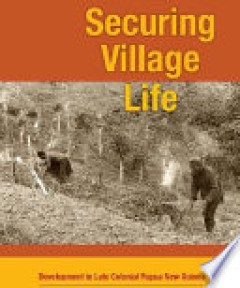
Securing Village Life : Development in Late Colonial Papua New Guinea
Securing Village Life: Development in Late Colonial Papua New Guinea examines the significance for post-World War II Australian colonial policy of the modern idea of development. Australian officials emphasised the importance of bringing development for both the colony of Papua and the United Nations Trust Territory of New Guinea. The principal form that development took involved securing small…
- Edition
- 13
- ISBN/ISSN
- 9781922144850
- Collation
- 318
- Series Title
- -
- Call Number
- 338.9009953.MAC

Agriculture and Food Security in China What Effect WTO Accession and Regiona…
China’s accession to the World Trade Organization (WTO) has had profound consequences for the structure of its economy, and there will many more before the full benefits of an open trading regime will be realised. Agriculture and Food Security in China explains the background to China’s WTO accession and links accession to reforms beginning as far back as 1979. The book highlights China�…
- Edition
- -
- ISBN/ISSN
- 9781921313646
- Collation
- 440 p
- Series Title
- -
- Call Number
- 338.1851 CHU a
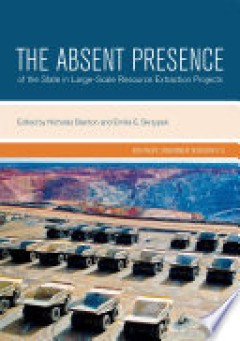
The Absent Presence of the State in Large-Scale Resource Extraction Projects
Standing on the broken ground of resource extraction settings, the state is sometimes like a chimera: its appearance and intentions are misleading and, for some actors, it is unknowable and incomprehensible. It may be easily mistaken for someone or something else, like a mining company, for example. With rich ethnographic material, this volume tackles critical questions about the nature of c…
- Edition
- -
- ISBN/ISSN
- 9781760464493
- Collation
- xix,380 p
- Series Title
- -
- Call Number
- 338.20994 TON T
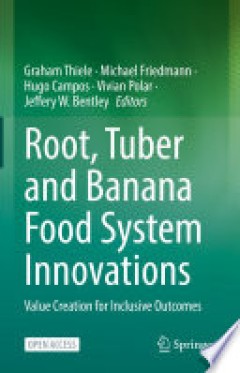
Root, tuber and banana food system innovations : value creation for inclusive…
This open access book describes recent innovations in food systems based on root, tuber and banana crops in developing countries. These innovations respond to many of the challenges facing these vital crops, linked to their vegetative seed and bulky and perishable produce. The innovations create value, food, jobs and new sources of income while improving the wellbeing and quality of life of the…
- Edition
- -
- ISBN/ISSN
- 9783030920227
- Collation
- XXXV, 561 p
- Series Title
- -
- Call Number
- 633.091724 THI r
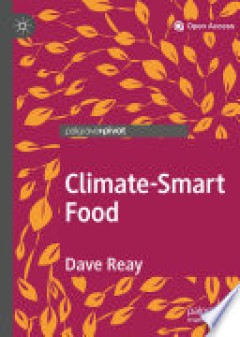
Climate-Smart Food
This open access book asks just how climate-smart our food really is. It follows an average day's worth of food and drink to see where it comes from, how far it travels, and the carbon price we all pay for it. From our breakfast tea and toast, through breaktime chocolate bar, to take-away supper, Dave Reay explores the weather extremes the world’s farmers are already dealing with, and what ne…
- Edition
- 1
- ISBN/ISSN
- 9783030182069
- Collation
- -
- Series Title
- -
- Call Number
- 641.30015516 DAV c
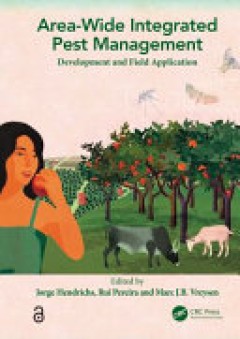
Area-wide integrated pest management : development and field application
Over 98% of sprayed insecticidies and 95% of herbicides reach a destination other their target species, including non-target species, air, water, and soil. The extensive reliance on insecticide use reduce biodiversity, contributes of pollinator decline. destroy habitat, and threatens endangered species. This new textbook attempts to address various fundamental components of AW-IPM, e.g. the imp…
- Edition
- -
- ISBN/ISSN
- 9781003169239
- Collation
- xv + 1020 p
- Series Title
- -
- Call Number
- 632.9 ARE a
 Computer Science, Information & General Works
Computer Science, Information & General Works  Philosophy & Psychology
Philosophy & Psychology  Religion
Religion  Social Sciences
Social Sciences  Language
Language  Pure Science
Pure Science  Applied Sciences
Applied Sciences  Art & Recreation
Art & Recreation  Literature
Literature  History & Geography
History & Geography